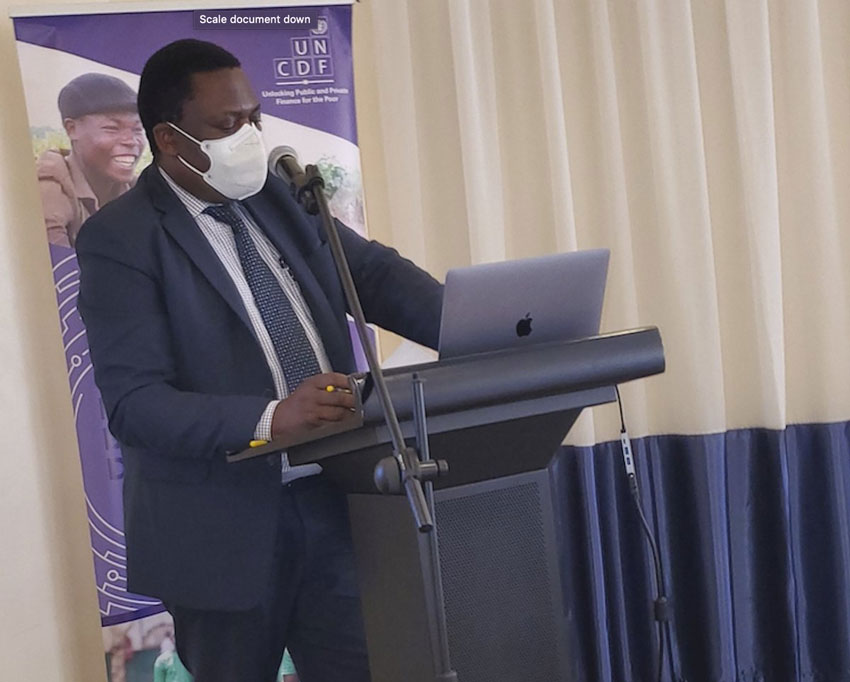The United Nation Capital Development Fund (UNCDF), in close collaboration with the Ministry of Health, has launched two digital solutions aimed at improving access to healthcare in rural communities in Uganda.
The two developed solutions/platforms which were developed under the funding of the Swedish government were unveiled on Tuesday at Golden Tulip Hotel, Kampala.
In Uganda according to statistics from the Ministry of Health, almost 95 per cent of rural areas find it hard to access healthcare services.
According to Chris Lukolyo, UNCDF Digital Country Lead, Uganda, these digital interventions are part of a wider UNCDF strategy – ‘Leaving no one behind in the digital era’ – geared towards empowering at least one million Ugandans to access and use digital services daily to improve their livelihoods.
Mr Lukolyo said that the use of digital technologies in the health sector has demonstrated potential for improving health outcomes worldwide and some communities with fragile health systems are at risk of being left behind.
“Now, more than ever, the world needs to be cognizant of the imminent widening of the digital divide when it comes to the opportunities that digital solutions present in addressing day to day challenges. Fostering an inclusive digital economy that leaves no one behind is a crucial component of our work at UNCDF,” he noted.
The two solutions developed include; The Village Digital Health Reporting service which was developed in cooperation with BRAC Uganda and Medic Mobile which will digitalize the reporting system used by community health care volunteers to improve access to primary health care and referral of patients from the communities to health facilities.
The second solution, a digital inventory management platform for the medical supply chain, developed in cooperation with Medical Access Uganda Limited and Signalytic which will provide end-to-end visibility of data on management of essential drugs and medical supplies thereby enabling the Ugandan supply chains to become more agile and reducing stockouts.
The solutions will be piloted in selected districts in Northern Uganda and Kiryandongo district.
The Director Curative Services, Ministry of Health Dr Charles Olaro said that the digital tech solutions will help even in tracking down Covid-19 patients and also improve community health care serving in areas deep down in villages.
“Health Community servicing is what in such period of Covid-19 much needed it, the health sector is currently facing challenges like poor commodity accountability, stock out and overstocks of commodities in health facilities, the burden of reporting and weak community-based surveillance system, therefore we would like to leverage on digital solutions to solve such challenges,” he said.
Mr Olaro added that the solutions came in time when the Ministry of health is in the process of widening and deepening it’s ICT to strengthen health service delivery in line with the National Development Plan (NDP).
“The Ministry of Health believes that digital health can help improve health service delivery by simplifying procedures, enhance transparency and accountability, and make available information and services to all stakeholders in an efficient and cost-effective manner,” he said.
Ashraf Kasujja, Director of Technical Operations, Medical Access Uganda Limited said that the Medical Access and Signalytic consortium is building on their successful digital projects’ experience to partner with UNCDF, Ministry of Health and other stakeholders to pilot and roll out digital solutions to address data management challenges that impede the timely and continuous supply of sufficient quantities of health commodities in the country.
“The consortium is committed to supporting the efforts of UNCDF, Ministry of Health and other stakeholders to improve stock management of essential medicines supplies in Uganda.”
“The digital era affords us an opportunity to look again at how health care systems are designed and health workers are supported. We must put new infrastructure and tools to work for and with communities, ensuring that quality care reaches everyone. Village health teams are essential pillars of Uganda’s primary health system and we must walk alongside them as they serve communities. We are proud to partner with BRAC Uganda, the Ministry of Health and UNCDF in this initiative,” said Josh Nesbit, CEO, Medic Mobile.
The two solutions in the first phase of the pilot study will consume over USD80,000.
Do you have a story in your community or an opinion to share with us: Email us at editorial@watchdoguganda.com










